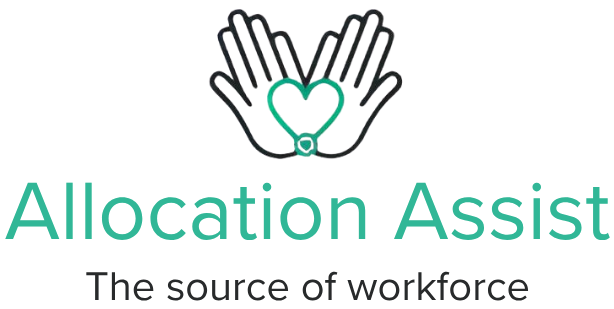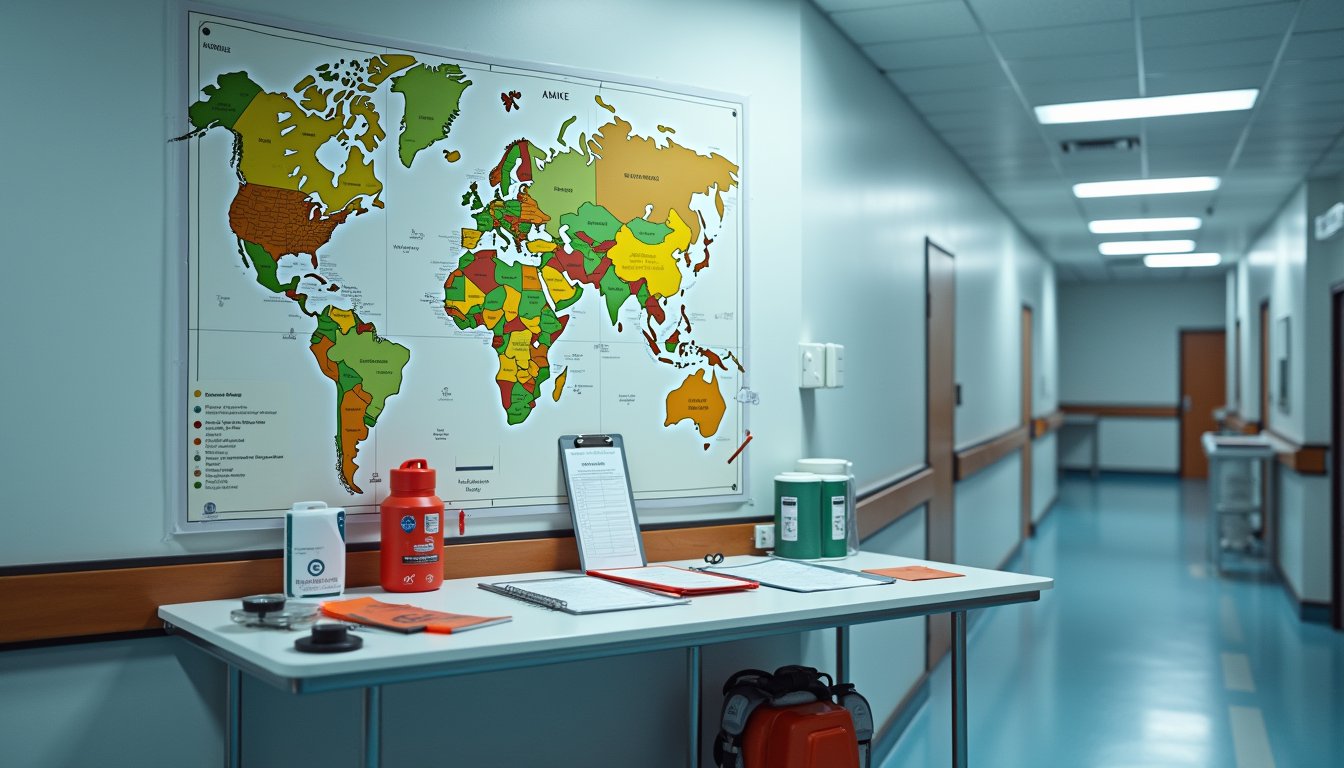You’ll find top-tier workplace cultures at Medical City Healthcare, Banner Health, and Memorial Hermann in 2025. These leaders demonstrate excellence through Medical City’s $1.6B facility investments, Banner’s 77% retention rates, and Memorial Hermann’s 35% reduction in turnover. They’ve established extensive employee recognition programs, data-driven wellness initiatives, and robust DEI frameworks. Prime Healthcare’s 400,000+ employee interviews confirm industry-leading satisfaction metrics. The complete analysis reveals additional standout organizations transforming healthcare workplace standards.
Top Healthcare Employers Setting Industry Standards

While healthcare organizations compete fiercely for top talent, several industry leaders have established exceptional workplace standards through strategic investments and extensive employee support. Medical City Healthcare’s $1.6 billion investment in facilities and their “Texas Two-Step” nursing program demonstrates their commitment to infrastructure and career mentorship. Memorial Hermann’s thorough approach has yielded impressive results, reducing turnover by 35% through targeted engagement initiatives. Banner Health has achieved remarkable stability with 50% retention rates among their 54,000 employees maintaining over five years of service. Modern Healthcare recognized CCM Health as one of the Best Places to Work in 2025, highlighting their intentional workplace culture.
You’ll find robust employee recognition programs at these institutions, from Medical City’s “Celebrate” peer recognition system to CCM Health’s data-driven professional development framework. Organizations like Compass Group and Memorial Hermann have earned prestigious accolades for their workplace innovation and inclusive practices. Their success proves that investing in employee growth and creating supportive environments directly correlates with organizational excellence and staff retention. Village Caregiving exemplifies this trend through their comprehensive training programs that prioritize compassionate care delivery.
Workplace Culture Metrics and Recognition Methods
You’ll find leading healthcare organizations utilizing sophisticated culture assessment tools that measure key metrics across DEI initiatives, employee well-being programs, and workplace flexibility offerings. Your organization’s recognition potential depends on meeting stringent industry benchmarks, including documented improvements in employee satisfaction scores, retention rates, and diversity representation at all levels. With nearly 46% of healthcare workers reporting burnout in recent assessments, organizations must demonstrate robust mental health support systems to be considered industry leaders. Companies that have implemented comprehensive wellness strategies are seeing 2.5x return on investment from improved workforce productivity and reduced absenteeism. To qualify for workplace culture awards, you must demonstrate quantifiable success through employee feedback mechanisms, stay interview data, and technological adoption rates that showcase your commitment to a progressive work environment. Banner Health exemplifies success in this area with their 77% long-term retention rate among employees who express desire to stay with the organization.
Culture Assessment Tools
How healthcare organizations measure and nurture their workplace culture has evolved markedly with the emergence of sophisticated assessment tools. You’ll find industry leaders leveraging platforms like PerformYard and JMG’s 5CCA to conduct thorough culture evaluation through integrated feedback systems. The comprehensive 52-page reports generated from these assessments provide detailed insights into cultural strengths and areas for improvement.
Healthcare-specific tools, including CCCET and TSET, deliver precise assessment methodologies focused on cultural competency in clinical settings. Tools like IAPCC-R have demonstrated excellent reliability in measuring cultural competence among healthcare professionals. With CVI scores exceeding 0.90, these instruments guarantee high-validity metrics for measuring provider performance. Real-time analytics enable continuous monitoring of cultural dynamics, while data-driven intervention planning helps identify and address gaps in communication and DEI alignment. Anonymous reporting features help create a safe feedback environment where employees can voice concerns without fear of retaliation.
Integration with existing HR systems streamlines the assessment process, allowing organizations to maintain compliance while gathering actionable insights that drive cultural transformation and leadership development initiatives.
Award Recognition Standards
Building on robust assessment practices, award recognition standards in healthcare now incorporate sophisticated metrics that validate exceptional workplace cultures. You’ll find workplace awards increasingly focused on measurable outcomes rather than paid endorsements, with recognition criteria emphasizing both traditional and innovative benchmarks.
- Peer nominations and structured feedback systems drive selection, with engagement scores improving from 3.85 to 3.89 out of 5
- DEI initiatives and extensive benefits packages, including tuition reimbursement and onsite daycare, factor heavily into recognition criteria
- Wellness program adoption, now at 87%, serves as a key metric for workplace culture excellence
- Stay interviews and predictive scheduling technologies demonstrate commitment to retention and burnout prevention
The standards reflect healthcare’s evolution toward data-driven culture assessment, with particular emphasis on mental health resources and holistic well-being initiatives that yield measurable improvements in workplace satisfaction. Organizations prioritizing safety culture metrics have seen enhanced recognition, as only 78% of employees currently feel their organization values safety. With rising concerns about staff shortages, organizations that demonstrate successful implementation of competitive pay structures are receiving higher recognition scores.
Employee Voice Measurement
While traditional workplace surveys once sufficed, modern healthcare organizations now leverage sophisticated employee voice measurement systems that combine AI-powered analytics with multi-channel feedback mechanisms. Tools like Workday Peakon Employee Voice now analyze real-time sentiment through structured questions, maintaining anonymity to encourage candid responses. Organizations emphasize data-driven decisions to enhance workplace satisfaction, mirroring successful approaches in patient care management. Leading companies follow comprehensive metrics established by HERO and PHA to evaluate their employee wellness initiatives. The integration of 360-degree feedback ensures that employee performance assessment captures insights from peers, supervisors, and patients alike.
You’ll find engagement strategies increasingly tailored to demographic needs, with platforms adjusting communication channels to reach younger workers through SMS and mobile apps. Current data shows significant generational gaps, with millennials (3.85) and Gen Z (3.81) scoring below the national average of 3.97 in employee feedback metrics. To address these disparities, leading healthcare companies implement peer-driven recognition models and immediate acknowledgment systems, while tracking action items that lead to concrete workplace improvements.
Employee Satisfaction and Engagement Benchmarks
Leading healthcare organizations in 2025 demonstrate exceptional employee satisfaction through rigorous third-party evaluations and quantifiable metrics. You’ll find strong employee morale across major healthcare employers, validated through thorough engagement strategies and independent assessments.
Healthcare leaders prove employee satisfaction through concrete data and external validation, setting new industry standards for workforce engagement.
- Prime Healthcare’s 400,000+ employee interviews and 4.9M reviews showcase industry-leading satisfaction metrics
- Banner Health’s 77% retention sentiment and 39,000+ VOICE survey participants reflect strong workforce engagement
- Southcoast Health’s consecutive 5-star recognition demonstrates sustained excellence in Massachusetts
- CCM Health’s Modern Healthcare award validates their culture through objective workforce research
These benchmarks indicate that top healthcare employers aren’t just claiming excellence, they’re proving it through data-driven measurements and third-party validation. Organizations like Southcoast Health have seen their engaged workforce contribute to a 23% increase in profitability. Their success in maintaining high satisfaction levels correlates directly with lower turnover rates and improved patient care outcomes.
With a workforce of 57,000 employees, Prime Healthcare demonstrates its commitment to fostering a supportive environment across its extensive network of hospitals and outpatient locations.
Benefits and Wellness Programs That Stand Out

Your healthcare organization’s competitive edge in 2025 will depend on offering extensive family support plans that extend beyond traditional benefits to include childcare subsidies, elder care assistance, and flexible scheduling options. You’ll need to provide innovative wellness resource access through integrated digital platforms that combine clinical expertise from providers like Mayo Clinic with personalized coaching and mental health support similar to Cisco’s successful model. Career growth incentive programs must align professional development with wellness achievements, incorporating both healthcare-specific rewards like Iowa Clinic’s gift card system and skill-based advancement opportunities that support overall employee well-being.
Comprehensive Family Support Plans
Modern healthcare companies recognize that extensive family support serves as a cornerstone of employee satisfaction and retention. Leading institutions like Boston Children’s Hospital have implemented thorough family support packages that address multiple aspects of work-life integration. You’ll find robust employee benefits designed to support your family planning and childcare needs.
- Paid family leave policies provide essential time for bonding and caregiving
- Enhanced fertility coverage and infertility treatment support options
- Monthly childcare subsidies to offset ongoing care expenses
- Emergency backup childcare arrangements when regular care is unavailable
These family support initiatives demonstrate healthcare employers’ commitment to supporting your personal and professional goals. By offering such thorough benefits, organizations are positioning themselves as employers of choice while helping guarantee their workforce can maintain peak work-life integration.
Innovative Wellness Resource Access
Healthcare organizations are revolutionizing employee wellness through five distinct resource channels that maximize accessibility and engagement. You’ll find state-of-the-art on-site facilities at companies like Intel and Mayo Clinic, offering thorough fitness centers and professional wellness coaching. Digital platforms from Sonic Boom Wellness and YuMuuv leverage wellness technology to connect remote workers through wearable integration and virtual challenges.
Mental health support has become paramount, with Facebook and Bristol Myers Squibb providing robust counseling and work-life balance initiatives. Employee wellness programs now feature gamified challenges from providers like YuMuuv, while preventive care incentives include The Iowa Clinic’s healthcare gift cards and Amazon’s integrated health services. These innovations guarantee you’ll have 24/7 access to both physical and mental wellness resources, regardless of your work location.
Career Growth Incentive Programs
Leading healthcare organizations have transformed traditional benefits packages into extensive career growth ecosystems that drive both personal and professional advancement. Through structured mentorship programs and skill enhancement initiatives, companies like Atlantic Health and AVALA are setting new industry standards for employee development.
- AVALA’s continuing education support maintains a 98.5% satisfaction rate while investing in targeted skill advancement
- Atlantic Health’s PRIDE Promise combines cultural education with professional certifications through employee resource groups
- CCM Health aligns career pathing with meaningful organizational goals, earning recognition from Modern Healthcare
- MRIoA’s certification workshops directly connect to professional development awards and recognition platforms
You’ll find these organizations prioritize long-term career sustainability through thorough educational support, ensuring compliance while fostering professional growth in an ever-evolving healthcare landscape.
Diversity, Inclusion, and Employee Resource Groups

Trailblazing organizations in 2025’s healthcare sector have redefined workplace culture through extensive diversity and inclusion programs. You’ll find industry leaders like Baptist Health and UT Southwestern implementing thorough diversity training initiatives, including unconscious bias education and cultural competency development.
With workforces reflecting significant diversity exemplified by UT Southwestern’s 69.7% female representation and robust minority staffing these organizations demonstrate measurable commitment to inclusion strategies. Top performers like Prime Healthcare and Medical City Healthcare have established resource groups and equity task forces to address systemic challenges. They’re backing these initiatives with data-driven approaches, conducting regular employee surveys and hosting structured dialogue programs. Their efforts haven’t gone unnoticed, with institutions like Baptist Health and ChristianaCare earning prestigious recognition from Forbes and Newsweek for their transformative diversity practices.
Professional Development and Career Growth Opportunities
As organizations adapt to rapid technological shifts and expanding service demands, professional development has become a cornerstone of successful healthcare workplaces in 2025. Leading institutions now offer extensive career mentorship and skill development programs, supported by structured pathways and certification opportunities.
- Healthcare administration roles show 29% projected growth, driving increased investment in leadership training and MHA programs
- Cross-training initiatives enable professionals to gain experience across outpatient, telehealth, and home care settings
- Educational partnerships with institutions like UNMC provide clinical training and residency opportunities
- Accelerated certification programs through MedCerts prepare professionals for in-demand roles such as medical coding and EHR specialization
You’ll find robust support for career advancement through tuition assistance, one-on-one navigation support, and specialized training programs that align with industry compliance standards and technological requirements.
Innovation and Technology in Healthcare Workplaces
The digital transformation of healthcare workplaces in 2025 centers on AI-driven solutions and automated workflows, with organizations reporting 30-40% reductions in administrative burden through strategic technology adoption. You’ll find workplace innovation driven by AI integration across clinical documentation, predictive analytics, and patient care planning platforms.
Leading healthcare employers prioritize clinician collaboration in technology adoption, incorporating your feedback into AI tool development and automation systems. You’re supported by ambient intelligence solutions for voice-to-text documentation, virtual nursing programs, and telehealth platforms that enhance your efficiency. Data analytics capabilities empower your decision-making through structured EHR integration and real-time insights, while robust compliance frameworks guarantee ethical AI deployment. Your workplace technology experience includes AI-powered communication tools and precision medicine platforms that revolutionize patient care delivery.
Work-Life Balance and Employee Support Systems
Leading healthcare organizations in 2025 demonstrate exceptional commitment to work-life balance through extensive support systems that achieve 98.5% team satisfaction rates. The industry’s enhanced work-life integration programs prioritize employee assistance through thorough support networks and family-centric policies.
Healthcare leaders set new standards for employee wellbeing, achieving remarkable satisfaction through comprehensive support systems and family-first workplace policies.
- Enhanced parental leave combined with reduced childcare costs creates sustainable work-life integration
- Mental health resources and employee-driven wellness initiatives boost team satisfaction
- Employee-led committees and resource groups foster authentic workplace cultures
- Transparent practices and continuing education support drive 95% engagement rates
You’ll find these organizations prioritizing holistic employee development while maintaining compliance with industry standards. Their focus on supportive environments enables staff to thrive professionally while managing personal commitments, resulting in consistently high engagement metrics and exceptional workplace satisfaction scores.
Leadership Approaches and Team Empowerment Strategies
Modern healthcare organizations have revolutionized leadership approaches through data-driven empowerment strategies, achieving unprecedented 98.5% team satisfaction rates across multiple institutions. You’ll find transformative leadership styles at companies like Atlantic Health System, where the PRIDE Promise framework drives 95% meaningful work alignment, and AVALA, where team engagement councils optimize cross-functional dynamics.
| Organization | Leadership Approach | Impact Metrics |
|---|---|---|
| Atlantic Health | PRIDE Framework | 95% Mission Alignment |
| AVALA | Team Councils | 98.5% Satisfaction |
| AMN Healthcare | Recognition Programs | Continuous Growth |
| CCM Health | Strategic Partnerships | #9 Satisfaction Rank |
| AVALA | Tech Integration | Quality Improvements |
These institutions demonstrate how transparent communication channels, employee-driven committees, and intentional mentorship programs create sustainable team dynamics that enhance both clinical and operational outcomes.
Frequently Asked Questions
How Do Remote Healthcare Workers Maintain Team Connections Across Different Locations?
You’ll maintain strong remote healthcare team connections through strategic virtual team building and robust communication tools. Use digital platforms like Slack or Microsoft Teams for real-time collaboration, and schedule regular video conferences to maintain face-to-face interactions. Participate in virtual wellness challenges and online professional development sessions to strengthen team bonds. Leverage cloud-based documentation systems for seamless information sharing, and engage in structured mentorship programs to foster meaningful professional relationships across locations.
What Strategies Help New Employees Adapt to Established Workplace Cultures?
You’ll adapt faster to established workplace cultures through structured onboarding experiences and dedicated mentorship programs. Pair with experienced colleagues who can guide you through department-specific protocols and cultural norms. Take advantage of peer-led resource groups and wellness committees to build connections. Actively participate in employee engagement councils and multidisciplinary recognition campaigns. You should also leverage cultural competency training and transparent communication channels to understand workplace expectations and team dynamics.
How Are Patient Satisfaction Scores Linked to Employee Workplace Satisfaction?
You’ll find a direct correlation between employee engagement and patient satisfaction scores in healthcare settings. When staff members feel valued and supported, they deliver better patient care, which reflects in patient feedback. Research shows that facilities with high employee satisfaction rates typically see 25% higher patient satisfaction scores. Engaged healthcare workers are more likely to provide empathetic care, follow safety protocols consistently, and respond promptly to patient needs, leading to improved clinical outcomes.
What Role Do Former Employees Play in Shaping Current Workplace Policies?
You’ll find that former employees greatly influence workplace policies through structured exit interviews and post-departure feedback. Their insights drive culture evolution by highlighting systemic gaps in leadership, compensation, and work-life balance. Healthcare organizations like Atlantic Health System and CCM Health actively incorporate this employee feedback into policy refinements, resulting in improved retention rates and workplace satisfaction. This data-driven approach guarantees compliance while creating more responsive organizational policies.
How Do Healthcare Companies Measure Return on Investment for Culture Initiatives?
You’ll find healthcare companies use multi-layered ROI evaluation systems for culture initiatives. They track culture metrics through employee surveys, achieving benchmarks like Atlantic Health’s 95% meaningful work perception. You can measure returns through participation rates (like Zuora’s 86% engagement), wellness program adoption, and third-party validations. Healthcare organizations also quantify ROI through reduced care costs, improved retention rates, and productivity correlations linked to wellness programs and cultural investments.








